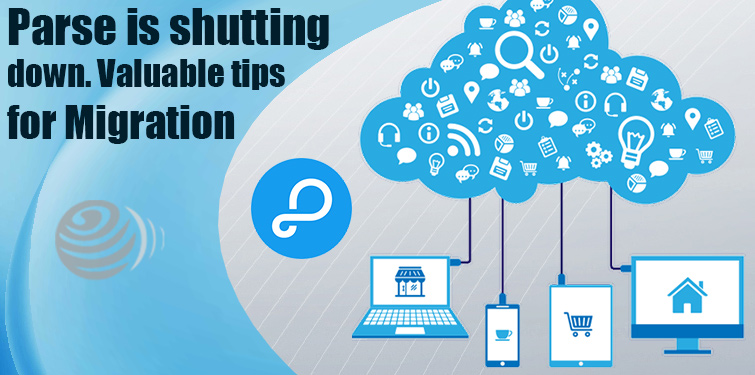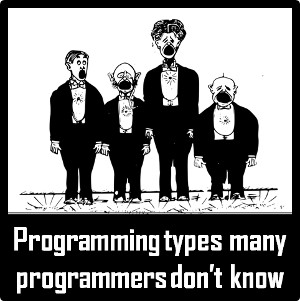Parse is shutting down. Here is how to execute migration
Parse is a cloud mobile solution owned by Facebook and recently stated that it will be shutting down their services as of January 2017. With this three things are clear, to start with, even the best of services may fail to make it as a business. It’s said that Parse (i.e. Facebook) has lost the war with Amazon and Google despite offering a great product at lesser price, hence this decision to shut down has been taken. Secondly, a third party backend solution is not going to last forever and lastly in case you are developing an app with Parse, then you must consider transiting to a different solution. Here we present the tips:

How to initiate migration from Parse?
As we begin, it’s advised to first check deep your Parse integration is
Parse offers extraordinary services that are needed by almost all mobile apps. Like, Push notifications. Login/logout, simple logic between users and significantly simple and highly configurable database. These functions are commodities and can be easily moved to other services or custom made backend without any trouble. Mainly, Parse is used to serve such simple needs so that a transition process is not painful.
Be apprehensive only when you have a complicated logic in your app or integrations between Parse and other third party services. Key features that are served by Parse must be defined and need to be ranked from crucial to nice-to-have but not certainly as necessary. Create a diagram to get the bigger picture and then execute damage limitation.
Create a shortlist of similar solutions and review them
These are several of mobile BaaS (backend as a services) alternatives for Parse and Amazon fairly wins with its AWS and AWS Mobile Hub. Service by Google is called Firebase and it was tweeted that it has their complete support today. Besides Microsoft also offers a great solution in its Azure cloud and thus recommends CloudKit or Cloudmine.
Go for these solutions and you are just not going to regret. Choose a solution as per your need, however it’s advised to look for the three following characteristics, like it needs to solve your problems quickly. In case, you used Parse as you didn’t aim to be involved in backend coding/server maintenance and was keen on having simple, user friendly panel, then you must choose another BaaS. The service picked by you must also have its Parse migration process ready/documented. Soon automated migration tools will disappear. Go for a service that offers a clear solution and finally, just believe that the service you rely on will stick forever. Now as Facebook closed Parse, then anything could happen.
Decide if you really want to stick to a cloud solution
In the long term, using BaaS is really not recommended. However BaaS is advised as a good solution for prototyping/MVP: you can ship your app fast and safe without worrying about backend developer/server code maintenance overhead. Vital infrastructure and backend code must be owned and developed internally. It’s considered as the best software development practice while the Parse fiasco has already proved its significance. It’s kind of mandatory for products with already proven traction and install base.
Next you can think of moving current setup to your servers – Parse published a module that allows doing it. However do keep in mind that this might results in certain problems in the coming time.
You take the decision and ultimately you must make a choice depending on what stage of product market fit you are currently at as well as your long-term plans. It’s suggested to assess the scope of migration before you move on with the process. After all, consultation plays a vital role.
Do a code review
Good code mainly depends on these foremost things like transparency, team efforts and great processes. Thus we have incorporated pair coding and automated tests as a part of our workflow and then code reviews are executed both for internal and external projects.
It’s advised to do the same with your project like you can do code review as that gives you insights into what’s wrong with the app as well as allows you to see the things for a different perspective. In the case of Parse fiasco, it will also be helpful with the decision process, like, Should I migrate to an open source Parse server? Should I rather choose other BaaS? Do I need to refactor everything? How much dependencies are there as well as how harmful the process will be? Getting answer to these essential questions is most necessary.
At present reviews are being carried out for our Parse projects – both internally as well as for our clients. This way it is easier to assess the damage ad make well thought out decisions about next steps.
Now as the migration is certain to happen, take a deep breath and take it easy. Over the years of software development, we came across various cloud services going out business. Besides, we managed to switch or refactor in time sans any major difficulties, no matter how small they were. Ensure carrying out a comprehensive QA process during and after the migration. In all you have 12 months to do so as Parse will be switched off in January 2017.
Now lest you are concerned how you can prevent such problems in the future then it’s quite simple. Use BaaS or other third party software and at the same time ensure abstracting out the dependencies on such services.

 Arun
Arun








Please try the following link to migrate an Parse application in less than 5 minutes. http://blog.back4app.com/2016/03/01/quick-wizard-migration/